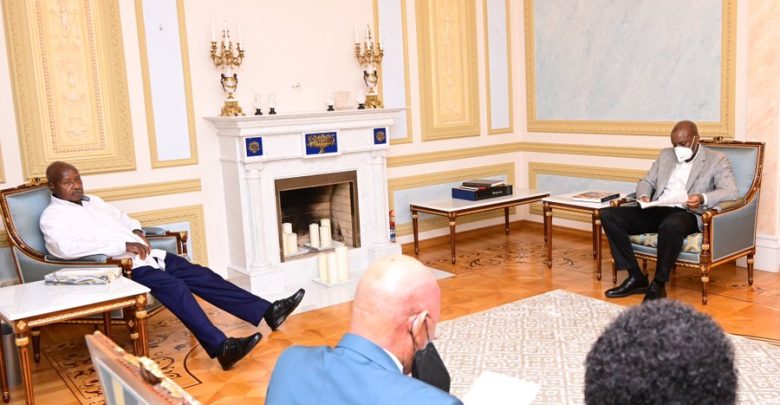News
First Son Gen Muhoozi Joins Museveni On Trip To Russia

Gen Muhoozi Kainerugaba, the First Son, has travelled to Russia with President Museveni to attend the second Africa-Russia summit, which is scheduled for July 27 and 28, in St. Petersburg, among other events.
Museveni flew out for the summit that begins tomorrow with Gen Muhoozi, who is also the Senior Presidential Advisor on Special Operations, according to sources acquainted with the situation.
Although the precise rationale for having Gen. Muhoozi with him is unclear, people in the halls of power claim that this is a part of Museveni’s larger effort to acquaint his son with the diplomatic community and the possible allies he will require if he decides to pursue a political future.
For instance, in March, during the height of the conflict between Russia and Ukraine, he tweeted that he would deploy troops to Moscow to defend Vladmir Putin, the president of Russia.
He stated on Twitter, “Call me a Putinist if you want, but Uganda should send soldiers to defend Moscow if it were ever threatened by imperialists.
The West is wasting its time by spreading pointless propaganda in favour of Ukraine.
Gen. Muhoozi Kainerugaba met the Russian ambassador to Uganda, Vladlen Semivolos, just last month. During their meeting, they reviewed the agreement between our two countries’ military-technical cooperation and talked about the excellent bilateral relations between Uganda and the Russian Federation.
The journey
Museveni will go from Russia to Serbia to inaugurate Uganda link, an experiential trade, tourism, and investment hub.
The centre, which has been established in Belgrade and will be formally launched by the president, is meant to provide Ugandans with chances for export promotion.
Aleksandar Vui, the president of Serbia, is anticipated to get an invitation from President Museveni to attend the Non-Aligned Movement (NAM) meeting slated for January of 2019.
It is noteworthy that along with Ghana, India, Egypt, and Indonesia, Serbia, then known as Yugoslavia, played a vital part in the establishment and administration of NAM.
The Ministry of Defence has received reports that there are barriers to obtaining weapons as part of Uganda’s concerns about regional security.
Given that NATO has fully booked all arms manufacturers around Europe for the upcoming three years in support of Ukraine amid the current confrontation with Russia, President Museveni may utilise his time in Serbia to negotiate for weapons.
Due to the presence of ADF forces in Eastern DRC, Uganda is experiencing security issues within the region, particularly in the Democratic Republic of the Congo (DRC).
Additional weapons are needed for the UPDF’s continued operations because they are still deployed in the region.
The African Union Transition Mission in Somalia (ATMIS), which has been reducing its soldier strength since 2022, is also questionable.
The difficulties are exacerbated by the impending withdrawal of US and UN troops from Somalia.
President Museveni may have to use diplomatic means given Uganda’s location in the centre of these security issues, since obtaining the required armaments from overseas may be difficult given the current demand from NATO’s backing for Ukraine.
These missions and security worries highlight how crucial it is to handle Uganda’s demand for resources, particularly arms, in order to properly protect regional peace and security.
